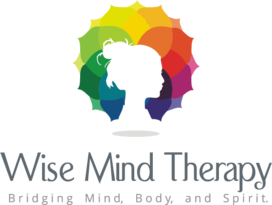Adults who were impacted by physical or mental abuse in their younger years can greatly benefit from the powerful outcomes of EMDR Therapy to process the trauma and heal.
For more information on childhood trauma therapy, call me, Kelly O’Donnell, at 314-643-8224 or complete an online contact form. Reach out for a free initial phone consultation.
Childhood trauma can shape detrimental thought-processes and behaviors for years to come. Experiencing abuse or neglect during the formidable younger years can manifest into:
– Relationship barriers
– Difficultly regulating emotions
– Trouble sleeping
– Higher rates of anxiety, depression, suicide and self-harm
– At-risk behavior of alcohol misuse and drugs
These negative and harmful thought patterns can affect our self-talk and the way see and interact with family, friends and the world around us including:
Passive-Aggressiveness and Passivity
Our relationship and understanding of anger is molded during childhood. How we observe anger shows us ways it can be used even if it is violently or overly submissive, quietening any form of complaint. Unhealthy approaches to a normal human reaction such as anger can damage the way we use this emotion as a tool to communicate.Victimhood Thinking
Negative self-talk can grow stronger during the years after being victimized, locking us into a victim mentality as we continue to age. Therapy can help flip the switch from victim to survivor.Introjects
Robin Shapiro, author of Easy Ego State Interventions Strategies for Working with Parts explains how we’re molded by the examples, or introjects, we observe as children. Introjects, most common between children and parents, occur when we unconsciously adopt the ideas or attitudes of others. As adolescents we tend to exemplify the good and even the unhealthy behaviors and attitudes of our caregivers and role models. Children use their environment to begin establishing a sense of identity and self, making introjects and their future impact important.Examples of positive introjects:
- Mirror parents’ healthy advice and cautions
- Able to self-soothe
- Mimicking compassion
Examples negative introjects:
- Absorb parents’ anxiety, rage and depression
- Develop critical interior voice
- Imitate abusive tendencies
False Self
In our adolescent years we seek the support, love and approval of parental figures. When these emotional needs aren’t met, children may learn to create a version of themselves that suppresses actions or thoughts they believe may prohibit them from desired affection, losing their true inner self. This false self can carry over into adulthood.
